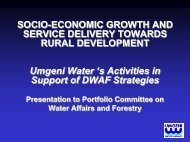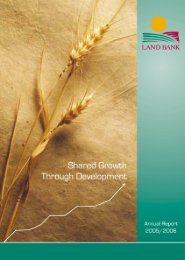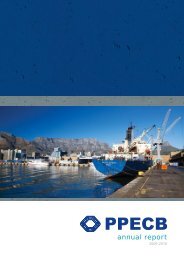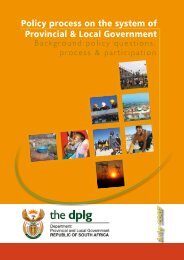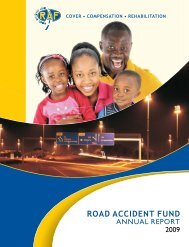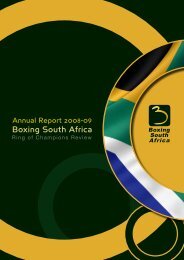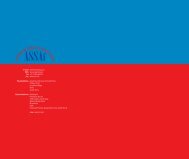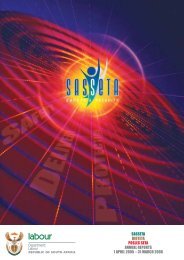Human Settlements Review - Parliamentary Monitoring Group
Human Settlements Review - Parliamentary Monitoring Group
Human Settlements Review - Parliamentary Monitoring Group
You also want an ePaper? Increase the reach of your titles
YUMPU automatically turns print PDFs into web optimized ePapers that Google loves.
<strong>Human</strong> <strong>Settlements</strong> <strong>Review</strong>, Volume 1, Number 1, 2010<br />
Morris (2009:1) points out that Schumacher<br />
used the term “appropriate technology” to refer<br />
to “technologies that fit local conditions, are<br />
inexpensive, small-scale, simple to use, made<br />
from local materials, do not deplete natural<br />
resources, and help create fulfilling jobs and<br />
workplaces, especially for poor and rural<br />
people”, and these were intended to promote<br />
self-reliance. Schumacher’s book Small Is<br />
Beautiful highlights some the important themes<br />
(Morris 2009:2):<br />
• The importance of human scale,<br />
• The idea of natural capital; treating nature as<br />
capital and not as income,<br />
• Including concern for workers and<br />
environmental integrity in business decisions,<br />
• The “economy of permanence”, based on<br />
sustainable use of natural resources, and<br />
• Decentralism and a belief in community selfreliance.<br />
Although AT and the related concepts<br />
declined in the 1980s and 1990s, the<br />
principles reemerged at the beginning of the<br />
20th century. Environmental crises, energy<br />
crises, and climate change are among the<br />
triggers, which aided what the early AT<br />
advocates intended in industrial countries<br />
such as reduction of polluting industries,<br />
renewable energy, and ecological protection.<br />
However, the “alternative energy challenge<br />
was being interpreted through the incumbent,<br />
industrial frame, into which AT ideas did not<br />
fit comfortably” (Smith 2005:112). Wind and<br />
solar energy technologies are very expensive<br />
and require a considerable initial investment.<br />
A plant manager in a German solar panel<br />
factory stated (pers. Communication June<br />
2010) that the establishment of a new factory<br />
requires huge amounts from Government,<br />
i.e. subsidies. This is one reason why no<br />
production facility operates in Southern Africa.<br />
Laszlo (2010) summarises arguments for a<br />
further evolution of technology:<br />
“The evolutionary challenge for<br />
technology in the third millennium is one<br />
of designing the vehicles for sustainable<br />
human and societal development in<br />
partnership with earth. The challenge<br />
calls for the conscious creation of<br />
evolutionary systems-not through the<br />
‘hard technologies’ that shape and<br />
mold the physical infrastructure of our<br />
planet, but through ‘soft technologies’<br />
that augment creative and constructive<br />
processes of human interaction.<br />
Through them, humanity has the<br />
opportunity to create the conditions for<br />
the emergence of a true learning society<br />
at both regional and global levels. The<br />
meaning of key terms such as evolution,<br />
technology, and development must be<br />
explored if we are to create a shared<br />
understanding of the contemporary<br />
survival challenges faced by humanity”.<br />
The soft technologies inter alia refer to<br />
attitudes, ethics, and other psychological<br />
factors, where the hard technologies include<br />
alternative technologies. The combination<br />
of these two factors can be found in what is<br />
termed Eco-materials and green building.<br />
Ecomaterials is defined by EcoSouth as those<br />
construction materials that are ecologically and<br />
economically viable (ECOsur, 2010a). Due to<br />
the diminishing income from the sale of sugar<br />
to the former Soviet Union after 1989, Cuba<br />
began to develop its own building materials.<br />
15



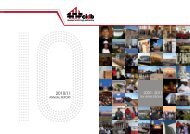
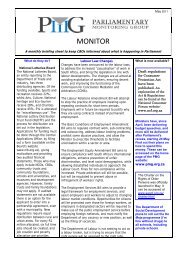
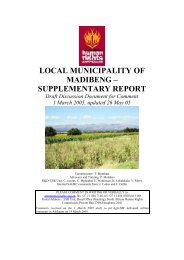
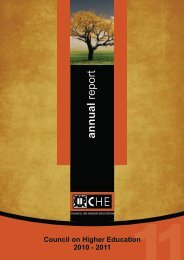
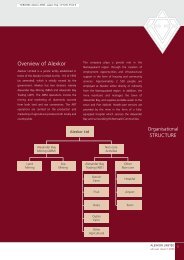
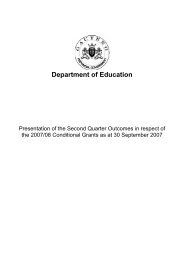
![National Research Foundation Annual Report 2008 / 2009 [Part 2]](https://img.yumpu.com/49774036/1/177x260/national-research-foundation-annual-report-2008-2009-part-2.jpg?quality=85)
